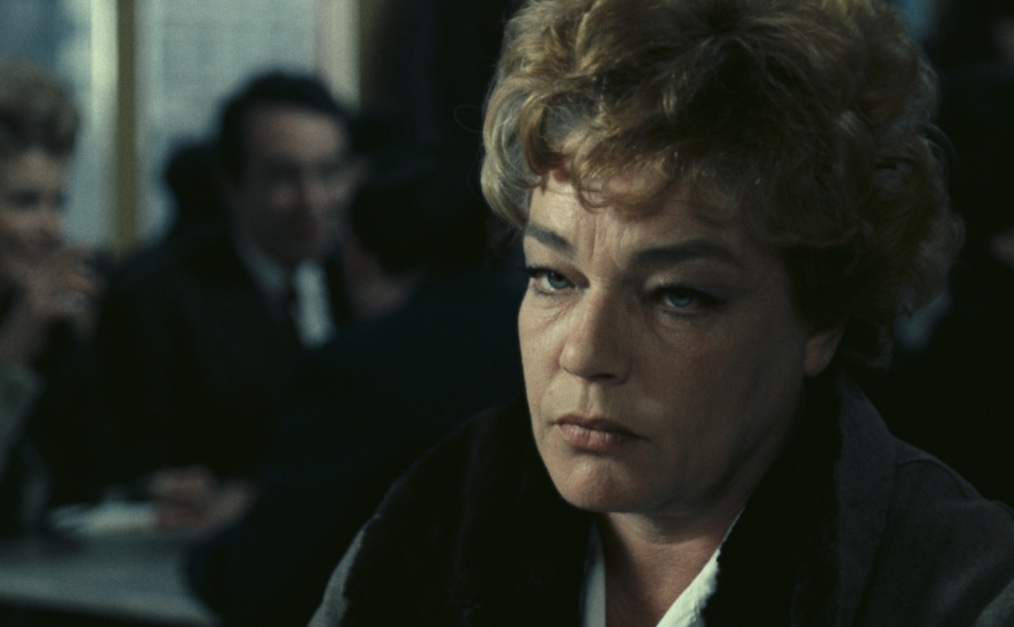‘Army of Shadows,’ Considered by Many To Be Director Jean-Pierre Melville’s Finest, Soars Anew After Rising From Ashes
The film was vilified in France at the time of its release and received sparse distribution elsewhere. Historians peg its poor performance to historical circumstances: Politics, as often happens, got in the way.

Film Forum is presenting a restored version of Jean-Pierre Melville’s “Army of Shadows” (1969) on the heels of its retrospective dedicated to the revered director. By many lights, this late film is considered Melville’s finest achievement, though it was vilified in France at the time of its release. The picture received sparse distribution outside its native country. Historians peg its poor performance to historical circumstances: Politics, as often happens, got in the way.
The commentariat was apoplectic that a World War II espionage film should include a brief scene that involved Charles de Gaulle. Adding fuel to le feu, the scene was also appreciative of de Gaulle. During the heady days of 1968, the former leader of the Free French forces was not only seen as a dinosaur, but as an enemy. The cinéastes at the influential film magazine Cahiers du cinéma were vociferous in pooh-poohing Melville’s latest. American programmers, in thrall to French tastemakers, collectively turned up their noses.
“Army of Shadows” wasn’t given a proper stateside release until 2006, whereupon it was festooned with huzzahs. What American critic didn’t put this 37-year-old film on his or her top-10 list? Whether the director’s countrymen ultimately came around is a good question. As a one-time member of the French Resistance, Melville had a personal investment in this project, an adaptation of a novel by Joseph Kessel. That he was galled by the response to the movie seems likely. Melville died in 1973 at age 55.
“Army of Shadows” is a war movie and though it deals with themes that are common to the genre, loyalty especially, it is absent the action or histrionics typically associated with such fare. Yes, there are moments in which our heroes engage in feats that are heroic, potentially dangerous, and even thrilling; overall, though, Melville opts for the laconic, concentrating on longueurs freighted with tension and ambiguity. Resistance fighters, more than anything, need patience. Their job is a waiting game.

The focus of the film is the leader of a resistance cell, Philippe Gerbier (Lino Ventura, he of the gruff demeanor and pugilist’s nose). We first meet him after he’s been accused by the French police of conspiring against the Vichy government. He’s summarily brought to an internment camp, but is soon transferred to Gestapo headquarters at Paris. Through means that are decisive, fleet, and brutal, our hero breaks free of his captors. The chase is on.
Except the chase is marked by an off-and-on array of pitfalls, byways, and odd tangents. We meet Gerbier’s scholarly brother Luc (Paul Meurisse) and fellow resistance colleagues who go under noms de plume like Le Masque and Le Bison. Among the most vital of these players is Mathilde (Simone Signoret), an operative who is as canny with planning a strike as she is donning a disguise. In a brief scene, we watch Mathilde consider a variety of guises by which she’s setting out to rescue a comrade. It’s a droll moment in a film that is relentlessly sober in its demeanor.
Is there a plot here? One damned thing after another happens, including a side-trip to London, but mostly we are made privy to the sacrifices and determination required to fight a just cause. In that regard, Ventura holds down the fort or, rather, the safe house: His take on the businesslike Gerbier is riddled, if just barely, by cracks of doubt.
Was the relationship between Ventura and Melville really as contentious as it has been made out to be? It’s not there to see on film — which means that two old pros knew when and where to hold their grudges. “Army of Shadows,” in more ways than one, underlines the debts we owe each other.

